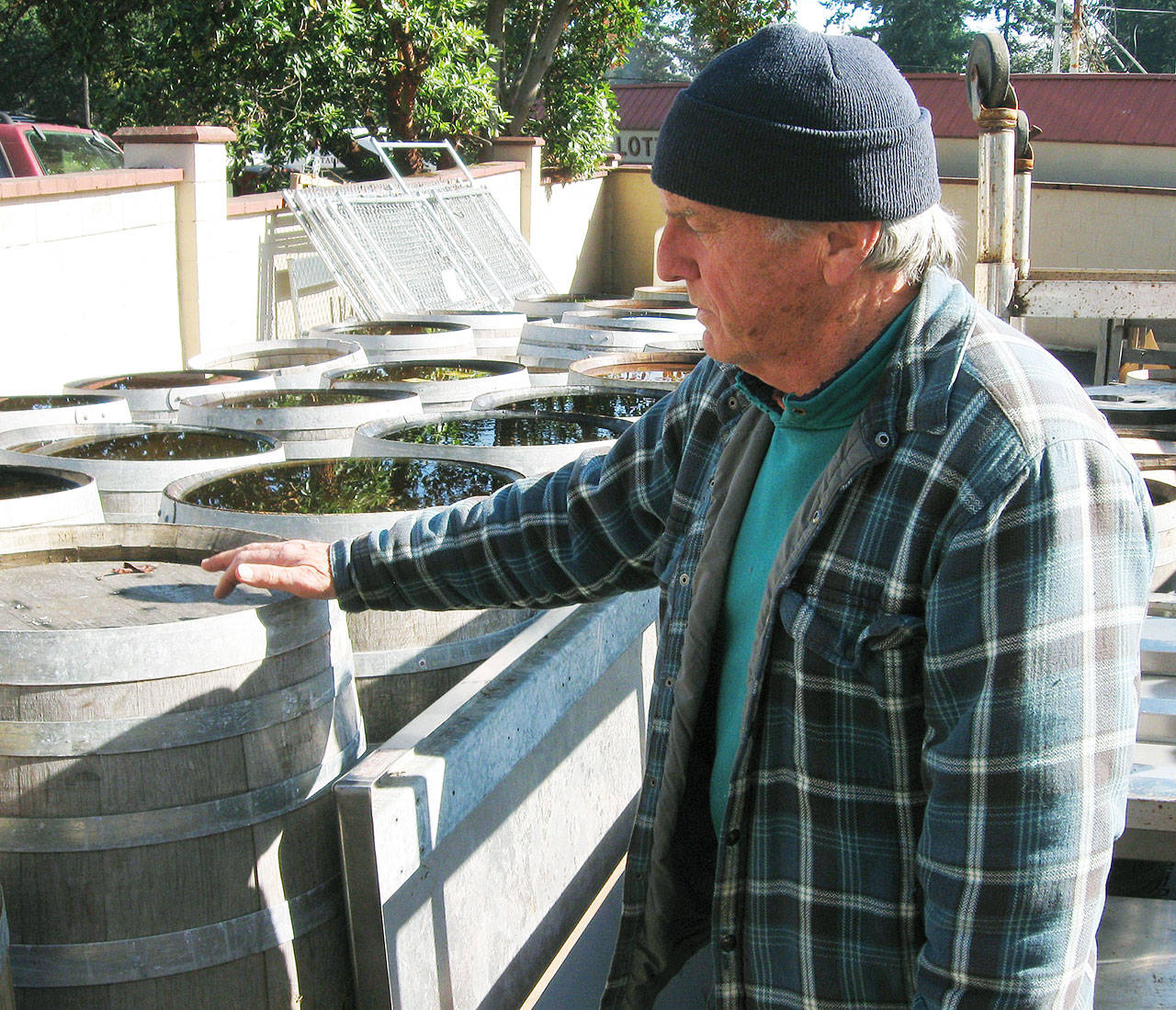Acknowledging that customer demand for a quality product could not outweigh debt and the need for investment capital, Britt Eustis is ceasing his pickle production business in Clinton.
“It is with a heavy heart we write to inform you we are winding down Britt’s Pickles’ operations and closing the doors. We truly appreciate all of your support over the years. Perhaps there is a pathway forward under new ownership,” Eustis posted on Facebook.
“Even though pickles and other fermented products are a growing market, we’ve struggled recently,” Eustis said. “I personally have been working without a paycheck for three years.”
Eustis has been commercially producing naturally-pickled foods in Clinton since 2011. He said he chose the location primarily because of good quality water. The location, however, has a detriment because water discharge into the septic system is limited.
According to Eustis, Britt’s Pickles is the only company of its type in the U.S. which ferments its products in oak barrels. The products were distributed only in Washington and a small area of British Columbia.
He said he has been looking at other projects and possible investments that would help the business grow. Recent expansion negotiations with a Canadian company collapsed at the last minute, he noted.
“Our products are very good, and there is a lot of interest in the company,” said Eustis. “People tell us their health has improved because of the known beneficial digestive aspects eating pickles.”
Eustis said the company’s intellectual property, such as proprietary techniques, is still for sale, and he is willing to help work with any new ownership that might develop. He wants to stay on Whidbey Island.
Natural fermentation as a way to preserve foods developed about 4,000 years ago. Pickling involves getting the liquid to the right acidic level to prevent anything but lactic acid bacteria from growing.
Vegetables and spices are packed in brine and aged in the oak barrels for at least three weeks. The finished product contains living organisms which contribute a fresh flavor and possible gastro-intestinal benefits.
Eustis said his fermented foods were made with traditional “old world” methods, including oak barrels originally used to produce wine. He said attention to detail such as the way cabbage is cut for sauerkraut gave his products a special authentic flavor.
He said he was drawn to fermented products for the potential of healthy bacteria to improve digestion and gastro-intestinal health. He started making pickles in his sister’s home in Seattle, partly as a way to help her husband recover from chemotherapy.
The move to Whidbey was based on the availability of high-quality commercial water from the six wells operated by Clinton Water District. “The good water really made a good product,” he commented.
Eustis has been in the natural and organic food business since 1975. He moved from Connecticut to Colorado’s Western Slope, where he was involved in organic apple juice production.
Before coming to Washington, he was working in Minneapolis for a company using durum wheat to make organic semolina flour for pasta.
At one point in 2016, Britt’s Pickles had six full-time employees at the Whidbey facility.
Eustis said the company just couldn’t reach the increased sales level to raise investment capital for continued growth.
There was some online business, and Britt’s Pickles developed a special watertight pouch which significantly reduced shipping costs. The company also sold kits for making pickles at home.
“People love our product,” Eustis said. “I’m confident the company can continue in another incarnation under new ownership.”
For a while, Eustis will keep busy by liquidating his production equipment. He hopes to generate interest in the purchase of the intellectual property as a means of paying off the company debt.


